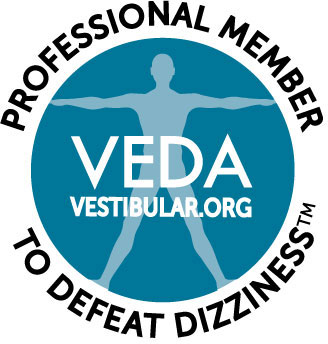One of the most satisfying parts of being a neurovisual specialist is being able to help those who have lost hope. Many people who have undiagnosed binocular vision dysfunction (BVD) suffer for years from a variety of symptoms, including headaches, migraines, dizziness and double vision symptoms. They seek help through the traditional routes, visiting various doctors and specialists and trying out multiple medications and treatments, yet are unable to receive relief. Such was the case for Christopher, who recently shared his experience on Yelp.

Sometimes the Eyes Really Are the Problem
“I have been suffering for years with migraines and never thought to check my eyes. I just assumed that it was hereditary since I remember my aunt suffered all her life with them. Until I started getting these dizzy spells, but it felt more like my brain was swooshing around for a quick moment and I would lose my balance. I went for MRIs and all types of tests. While at the dentist’s office, I got the news from my test results … that they were good and my dizzy spells had nothing to do with my brain. But with that good news, I also was frustrated because I felt these dizzy spells were getting worse and that they were very debilitating to me, and I was left not understanding what was wrong.
“So at the dentist office I was explaining my frustration to the hygienist and she recommended me to an eye doctor; specifically, the Neuro Visual Center. I thought to myself that there was no way it’s my eyes since I felt I see clear. But with nothing to lose, I booked an appointment, and this appointment changed my life. It turns out that I have narrow angles of my eyes which causes me to experience all the symptoms I was feeling. The doctor explained to me so well why I am experiencing migraines and dizzy spells. I felt very comfortable with her. I have now been wearing glasses for a year now and I feel completely better. I am so happy that I found this office.”
How Vertical Heterophoria Causes Dizziness
One type of BVD is vertical heterophoria (VH). This condition is the result of very small eye misalignments that put the objects seen by the eyes on slightly different levels. This makes it so the brain isn’t able to merge the two separate images the eyes see into one clear, focused picture. The brain is able to correct this problem, but it does so at the expense of the eye muscles, which are put under a great amount of strain by this correction. It is these tired, overworked eye muscles that lead to a variety of uncomfortable and sometimes painful symptoms, including the dizziness experienced by Christopher.
Let Us Help You
The specialists at Neuro Visual Center of New York truly care for each and every patient. If you’re experiencing symptoms of VH and think we might be able to help, give us a call today at (516) 224-4888.





